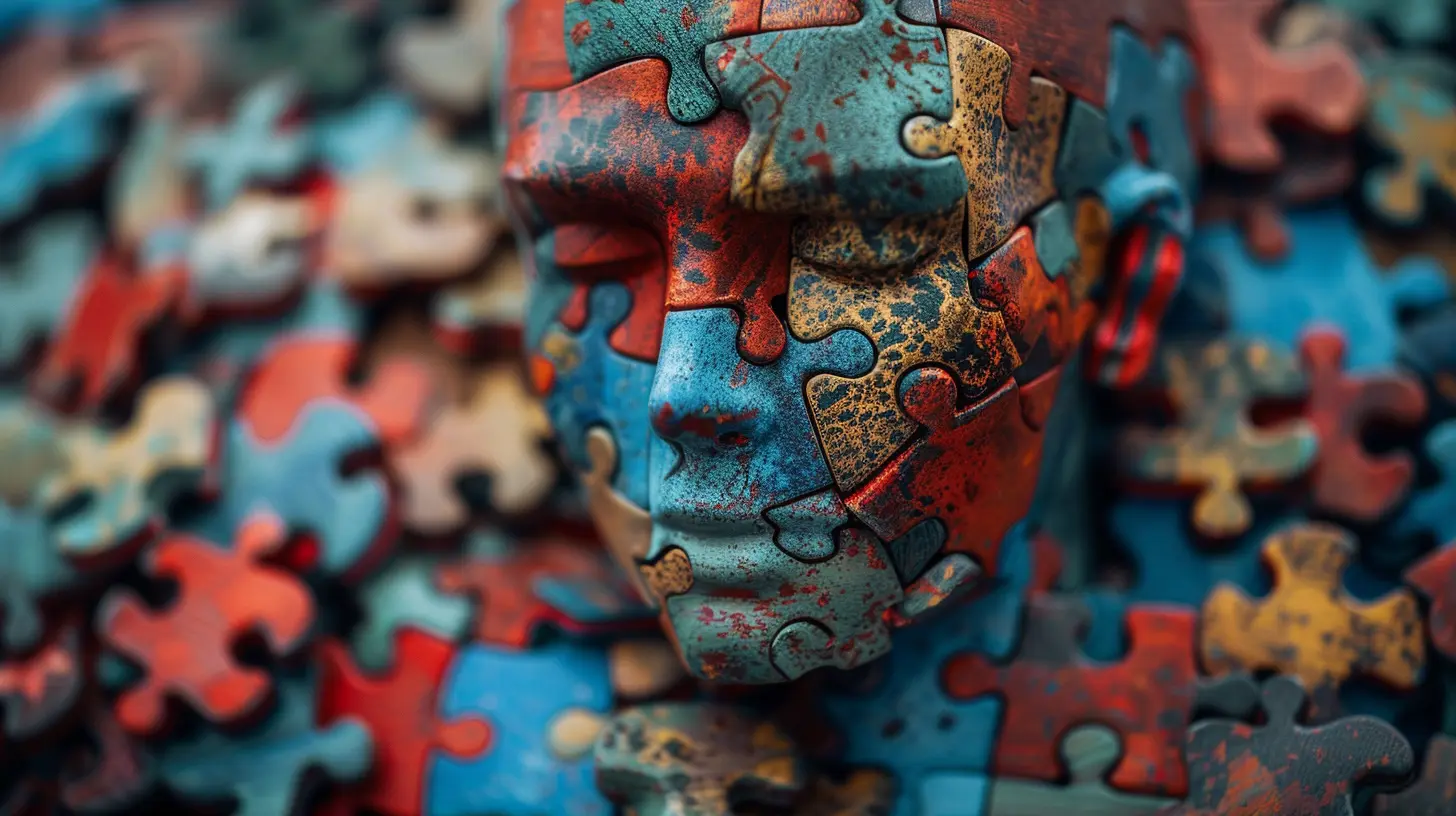16 December 2024
When we hear the term "learning disabilities," most of us instantly think about difficulties in reading, writing, or math. But what if I told you that the impact of learning disabilities goes far beyond the classroom? It’s not just about struggling to keep up with schoolwork or mastering a particular subject—it’s also about how these challenges can seep into the emotional and mental well-being of a person.
In this article, we’ll dive deep into the connection between learning disabilities and mental health, shedding light on the often-overlooked emotional toll. Whether you’re someone living with a learning disability, a parent of a child who has one, or just someone curious about the topic, you’ll walk away with a better understanding of how these conditions can affect mental health and, more importantly, what can be done to support those who are struggling.

What Are Learning Disabilities?
Before we get into the mental health implications, let’s break down what we mean by learning disabilities. A learning disability is a neurological disorder that affects the brain’s ability to receive, process, store, and respond to information. These are lifelong conditions that can impact how a person learns in various areas, including reading (dyslexia), writing (dysgraphia), and math (dyscalculia), among others.However, it’s important to note that learning disabilities have nothing to do with intelligence—people with learning disabilities are just as smart as their peers. It’s simply that their brains process information differently.
Now, imagine facing these challenges every single day. Struggling with tasks that seem easy for others can take a serious toll on your confidence, self-worth, and mental health.

The Link Between Learning Disabilities and Mental Health
So, how exactly do learning disabilities affect mental health? The link is stronger than you might think.1. Low Self-Esteem and Confidence
One of the most common emotional side effects of learning disabilities is low self-esteem. Think about it—if you’re constantly feeling like you can’t keep up with your peers, it’s easy to start questioning your capabilities. Children and even adults with learning disabilities often feel "different" or "inferior" because they can’t perform certain tasks as effortlessly as others.This constant comparison can lead to feelings of inadequacy, making them believe they aren’t smart or capable. Over time, this can chip away at their confidence and self-worth, leading to a downward spiral of negative self-talk and anxiety.
2. Anxiety and Stress
Let’s be real: school or work can be stressful for anyone. But for someone with a learning disability, the pressure is multiplied. The fear of failing, the anxiety of being called on in class, or the stress of completing assignments on time can become overwhelming.Children with learning disabilities may also worry about being teased, misunderstood, or singled out by their peers. This constant state of anxiety can trigger chronic stress, which in turn can lead to physical symptoms like headaches, trouble sleeping, or even stomachaches.
3. Depression
Depression is another serious mental health issue that can arise from learning disabilities. When someone is constantly struggling and feeling like they don’t measure up, it’s easy to fall into a state of hopelessness. They may start to internalize their struggles, thinking, “What’s the point of even trying?”Over time, this feeling of helplessness can turn into depression. In fact, research has shown that individuals with learning disabilities are at a higher risk of developing depression compared to their peers without disabilities.
4. Social Isolation
Social relationships can also be affected by learning disabilities, especially in school settings. Children with learning disabilities may find it difficult to make friends or keep up with social cues. They might feel left out or be subjected to bullying, which can lead to social isolation.And as we all know, feeling isolated or like you don’t belong can wreak havoc on your mental health. It’s human nature to crave connection, and when that’s lacking, it can contribute to feelings of loneliness and sadness.
5. Perfectionism and Fear of Failure
Interestingly, many individuals with learning disabilities may develop perfectionistic tendencies. Because they struggle to keep up in certain areas, they might overcompensate by trying to be "perfect" in other aspects of their lives.While striving for excellence isn’t inherently bad, perfectionism can lead to a cycle of stress and burnout. The constant fear of failure can paralyze a person, making them hesitant to try new things or take on challenges. And when they do fail (as we all do from time to time), it can feel even more devastating.

The Emotional Roller Coaster for Parents
It’s not just the individuals with learning disabilities who feel the emotional impact—parents often go through their own emotional struggles as well.Many parents feel a sense of guilt or helplessness when they see their child struggling. They may worry about their child’s future or question whether they’re doing enough to support them. Some parents also struggle with feelings of frustration, especially when they don’t fully understand the nature of their child’s learning disability.
This emotional roller coaster can lead to stress, anxiety, and even depression for parents. It’s crucial for parents to also seek support and resources to help navigate these challenges.

How to Support Mental Health in Individuals with Learning Disabilities
The good news is that there are plenty of ways to support mental health for individuals with learning disabilities. Here are some strategies to consider:1. Encouraging Self-Acceptance
One of the most important steps in supporting mental health is helping individuals with learning disabilities embrace their differences. Encourage them to see their learning disability as just one part of who they are, rather than letting it define them.Remind them that everyone has strengths and weaknesses, and that their unique way of thinking is what makes them special.
2. Providing Emotional Support
Sometimes, all someone needs is a listening ear. Encourage open and honest conversations about how they’re feeling. Let them know it’s okay to be frustrated, sad, or anxious, and that their feelings are valid.Creating a safe space for emotional expression can make a world of difference in helping them navigate their mental health challenges.
3. Building Resilience
It’s important to teach individuals with learning disabilities about resilience—essentially, the ability to bounce back from challenges. Life is full of obstacles, and learning how to cope with setbacks is a crucial skill.Encourage them to focus on their progress, no matter how small, and remind them that failure is a natural part of the learning process.
4. Seeking Professional Help
In some cases, professional intervention may be necessary. Therapists, counselors, and educational psychologists can provide valuable support for individuals with learning disabilities, helping them manage their mental health and develop coping strategies.Cognitive-behavioral therapy (CBT) has been shown to be particularly effective in helping individuals with learning disabilities manage anxiety, depression, and other emotional challenges.
5. Providing Tailored Educational Support
One of the most effective ways to prevent mental health issues in individuals with learning disabilities is by providing them with the right educational support. This might mean creating an individualized education plan (IEP) or working with specialized tutors who understand their unique needs.When individuals feel supported in their learning journey, they’re less likely to experience the frustration and anxiety that often accompany learning disabilities.
The Role of Schools and Workplaces
It’s not just parents and mental health professionals who play a role in supporting individuals with learning disabilities—schools and workplaces also have a responsibility.1. Creating Supportive Environments
Schools and workplaces can help by fostering inclusive and supportive environments. This might involve offering accommodations, such as extended time on tests, assistive technology, or flexible work schedules.By creating a space where individuals with learning disabilities feel understood and supported, we can help alleviate some of the mental health challenges they face.
2. Raising Awareness
Raising awareness about learning disabilities is also crucial. Many people—including teachers and employers—are still unaware of the emotional impact that learning disabilities can have. By educating others, we can reduce stigma and create more understanding and empathy.Final Thoughts
Learning disabilities are more than just academic challenges—they can have a profound impact on a person’s mental health. From low self-esteem and anxiety to depression and social isolation, the emotional toll can be significant. However, with the right support, individuals with learning disabilities can thrive both academically and emotionally.Whether you’re a parent, teacher, or someone with a learning disability, remember that you’re not alone in this journey. By fostering understanding, offering support, and seeking professional help when needed, we can help individuals with learning disabilities overcome their challenges and lead fulfilling lives.










Emory Miller
Thank you for shedding light on this important topic. Understanding the connection between learning disabilities and mental health is crucial for fostering empathy and support for those affected. Great insights!
February 3, 2025 at 5:01 PM